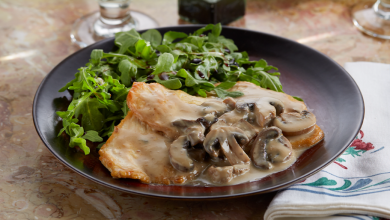Storing Leftover Foods and Beverages in the Freezer or Refrigerator

It is always best to consume leftovers as soon as possible. However, if you need to store them for later, it is important to do so properly in order to prevent foodborne illness.
Leftover foods and beverages can be stored in the freezer or refrigerator. Freezing is a good option for foods that will not be consumed within a few days. Refrigeration is best for foods that will be consumed within a week.
When storing leftovers in the freezer, be sure to place them in airtight containers or bags. This will help to prevent freezer burn. Freeze leftovers within two days of cooking.
How to Store Leftover Cauliflower Pizza in the Freezer or Refrigerator
Cauliflower pizza can be stored in the freezer or refrigerator. If freezing, be sure to place it in an airtight container or bag. Freeze within two days of cooking. If refrigerating, eat within a week.
When it comes to food storage, there are a few things you should keep in mind in order to prevent foodborne illness. First, it is important to store food at the proper temperature. Second, leftovers should be stored in airtight containers or bags. And finally, leftovers should be consumed within a certain time frame.
Storing Leftovers in the Refrigerator: Lasts Up to 3 Days
To store leftover pizza slices:
- Put a paper towel into the bottom of an airtight container (big enough to accommodate 1-2 slices).
- Place a slice of pizza on another paper towel and cover it with another.
- Repeat the procedure with the other pizza slice.
- Close the lid. If the top is loose, wrap a plastic film securely around the container.
Storing Leftovers in the Freezer: Lasts Up to 2 Months
- Method 1: Place the frozen pizza slices in an airtight container (without paper towels). Place them in the freezer.
- Method 2: Wrap each slice in a plastic wrap, followed by an aluminum sheet wrap. Freeze them immediately.
How to Store Leftover Tomato Paste in the Freezer or Refrigerator
Leftover tomato paste can be stored in the freezer or refrigerator. If freezing, be sure to place it in an airtight container or bag. Freeze within two days of cooking. If refrigerating, eat within a week.
Storing Leftovers in the Refrigerator: Lasts Up to 5-7 Days
- To store tomato paste:
- Put the tomato paste in an airtight container.
- Place the container in the refrigerator.
Storing Leftovers in the Freezer: Lasts Up to 2-3 Months
Wax paper must be used to line a tray. Use 1 tablespoon dollop of tomato paste and drop it into the tray, making sure the bits are separated. Allow the mixture to cool completely. Pour the fudge into a freezer-safe bag or container and freeze overnight.
Advantage: Tomatoes are mashed, and the paste is stored in a container with a tight-fitting lid. It’s ideal for storing because it takes up less space than jars. If you need 1-3 tablespoons of tomato paste in a dish, simply add 1-3 frozen cubes to the mixture. The entire tomato paste is broken down into smaller pieces, saving time and effort.
How to Store Leftover Smoothie in the Refrigerator
A smoothie can last in the fridge for up to 48 hours. However, it is best to consume it within 24 hours for optimal freshness and taste.
How to make your Smoothie last longer?
If you want your smoothie to last longer, add a handful of spinach or kale to it. The greens will help preserve the color and flavor of your smoothie while also adding some extra nutrients! You can also add a dollop of yogurt which acts as a natural preservative. Finally, avoid adding fruits that brown easily like bananas or avocados as they will cause your smoothie to turn brown quickly.
Storing Leftovers in the Refrigerator: Lasts Up to 12-24 Hours
Fill the jar with the smoothie to keep air from getting trapped inside, then replace the lid and store it in the refrigerator.
When the jar is completely sealed, air can’t get in, so the vitamins and minerals in the smoothie begin to oxidize. You can add vitamin C to the smoothie since it prevents or delays oxidation. Vitamin C is found in lemon juice, kiwi fruit, oranges, grapefruit, fresh berries, papaya, and watermelon.
However, all smoothies are prepared in unique ways. As a result, if your drink has an undesirable color or smells off, do not consume it.
How to Store Leftover Pasta in the Freezer or Refrigerator
Cooked pasta can last in the fridge for 3–5 days or in the freezer for 2–6 months. The longest-lasting cooked pasta will be those that are cooked al dente and then rinsed with cold water to stop the cooking process.
Plain Pasta Storing Leftovers in the Refrigerator: Lasts Up to 3-5 Days
Pasta cooked in water should be refrigerated as soon after cooking as possible. Because the pasta cools down rapidly, use a little oil or butter to coat it nicely and keep them from sticking together. Any oil, such as olive, canola, or vegetable oil, will work.
Remove the oil from the cooked pasta and store it in a zip-top bag. Excess air must be removed, the bag must be sealed, and it should then be refrigerated.
Plain Pasta Storing Leftovers in the Freezer: Lasts Up to 2 Months
Toss the cooked and cooled plain pasta in oil/butter before placing it in a freezer-safe bag. Keep frozen.
Storing Pasta with Sauce
To store pasta with sauce, put the pasta in an airtight container. Place the container in the refrigerator. The sauce will keep the pasta moist and prevent it from drying out.
Toss the cooked and cooled pasta with sauce in a freezer-safe bag. Remove as much air as possible, seal the bag, and then freeze it. When you’re ready to eat, thaw the frozen pasta in the fridge overnight and then reheat it on the stove.
How to Store Leftover Soups/stews in the Freezer or Refrigerator
Soups and stews can last in the fridge for 3–4 days or in the freezer for 2–6 months. The key to storing them is to cool the soup or stew quickly and then store it in an airtight container.
Storing Leftovers in the Refrigerator: Lasts Up to 4 Days
To store soup or stew in the fridge, place it in a covered container and put it in the fridge within 2 hours of cooking. When stored properly, soup and stew will last in the fridge for 3–4 days.
Storing Leftovers in the Freezer: Lasts Up to 2-3 Months
Pour the cooled soup/stew in a freezer-safe container. Fill it only halfway; leave a half-inch space on top. Place the lid on and freeze it. If you have too much leftover soup/stew, portion it into at least two containers.
Soups made with dairy ingredients, such as milk, cheese, or cream, are ideal consumed within two months. On the other hand, water- or broth-based soups/stews can be kept for three months.
To summarize, properly storing leftovers and beverages may help you avoid food waste. It can also protect you from food poisoning, stomachaches, and acid surges that sometimes occur when improperly stored leftovers are eaten!



